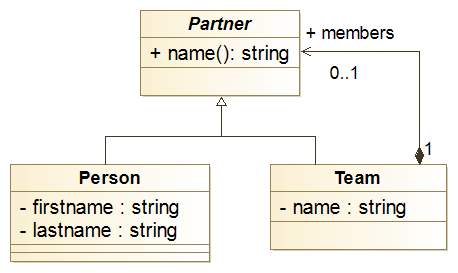I recently released quick-check, a JS library to easily declare data schema and validate and convert data accordinly.
Why Yet Another Library?
I did not find anything that fits my need. I ended up writing some boiler-plate code, code to convert object trees (i.e., maps and lists) into home-grown classes, first while working on the CAMP project (Python), and then on my RPP project.
I did find though libraries to convert JSON files into home-grown classes, using annotations for instance, but in my case, I needed to accept both objects trees from multiple syntax files, say TOML and YAML for instance, which I parsed using different libraries.
Declaring Schemas
Using quick-check, I can declare data schemas directly in the code, in a way that serves as documentation, and that cannot go out of date. For instance, in the following, I declare a schema to represent a tree of teams (where teams are made of either persons or other teams).
|
|
Parsing Data
Given this schema—which I can directly refer to as documentation—I can now parse my data file using:
|
|
Converting Data
By constrast, my custom classes looks like the following UML class diagram:

To ease the convertion, I can attach a convertion function to each type my schema has, as follows:
|
|
This allows me to quickly validate the data I read from files and to directly instantiates my custom classes.
